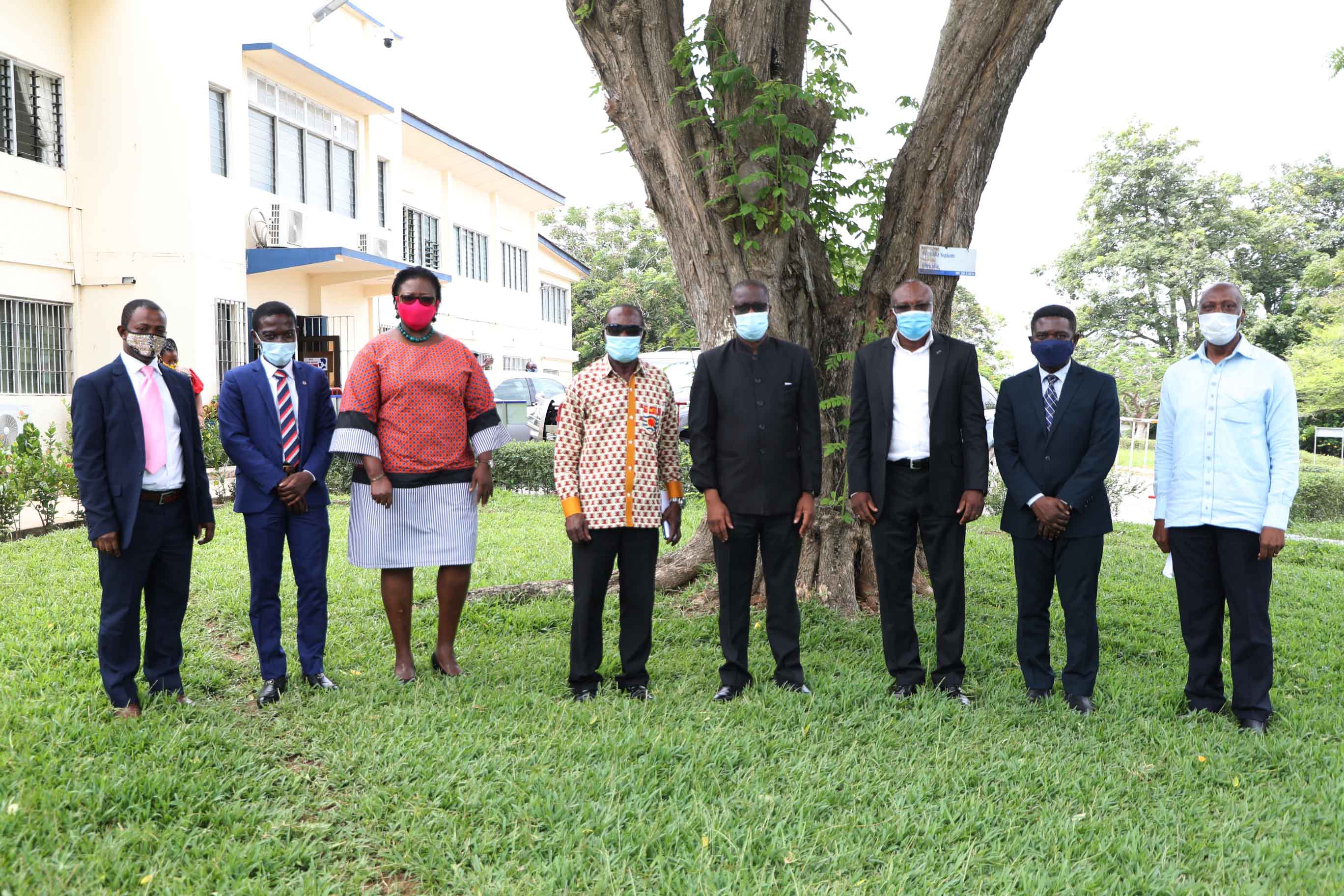The School of Business in collaboration with the ‘Building Expertise and Training for Growth (BET-Ghana Project), has organised a Multidisciplinary Workshop under the theme: “Approach to Applied Mixed Research in the Multidisciplinary Space: The Case of Food Processing and Consumer Goods.”
The Dean, School of Business, Prof. John G. Gatsi, indicated in his opening address that the BET Ghana project has benefited both lecturers and students. He said that, through the project, some lecturers have enriched their curriculum vitae (CV) after participating in an international workshop in Germany while others have been trained in the use of Information and Communication Technology (ICT) in teaching. He added that “the project is also enhancing our visibility as a Business School and the entire University.”
Relevance
Explaining the importance of the workshop, the Dean said that, “Multidisciplinary Research as a mode of research, combines the effort of multiple disciplines to bring onboard data, information, perspectives and application of theories to solve a particular problem or to provide a more enhancing understanding of a phenomenon.” Prof. Gatsi also stated that the essence of the workshop was to engage experts from various faculties of disciplines to point out the need for diversity because livelihood is challenged with issues of health, food, water, economy, marketing, and supply chain.
BET-Ghana Project
Briefing participants on the BET-Ghana Project and its objectives to the workshop, the Project Coordinator, Prof. Daniel Agyapong, said that the project was aimed at enhancing employability and self-employment opportunity of students and graduates specifically in the Consumer Goods and Food Processing industry; to increase the competitiveness and growth of the industry and promote innovation, export growth, and job creation, through the transfer of knowledge between UCC and the private sector. He added that the project would also promote online and digital learning; create networks for inter-, trans- and multidisciplinary training and to develop local cases for instruction. Prof. Agyapong gave a breakdown of the Project, as building expertise in the consumer goods and food processing industry, application-oriented learning programme, and the promotion of start-ups and businesses.
Inter-disciplinary Research
Speaking on the need to promote interdisciplinary research for consumer goods and food processing at UCC, Dr. Robert Sarpong Amoah, enlisted some of the benefits as “gaining knowledge from experts in other disciplines; gaining fresh insights and different perspectives; opening new areas of interest; enhancing the significance of research for greater impact and networking among different professionals.” He urged his colleagues to pursue interdisciplinary research.
Issues of Value Chain
A discussant, Dr. Martin Bosompem, called for urgent consideration to address the issue of the Value Chain in multidisciplinary research. He explained that it was the sequence of steps involved in the process of production to market delivery of a product. Dr. Bosompem stated that the significance of the Value Chain in interdisciplinary research included understanding relationships between businesses and actors along the value chain; identifying various researchers needed to solve a problem and as a vehicle for linking various researchers to address holistically the research problem along the value chain.
Solving World Problems
The Project Leader, Prof. (Mrs.) Rosemond Boohene hinted that currently, it had been recognised that the problems facing the world were not only from one discipline but had been generated from various disciplines. She, therefore, urged participants to work together to solve common problems with their expertise from different faculties, departments, industries, and centres for the common good of humanity. Prof. Boohene also encouraged participants to be bold enough to take calculated risks to work together and also maintain good networking. She was hopeful that the workshop would encourage multidisciplinary and interdisciplinary research among lecturers, students, and industries.
Present were Expert Task Force Member, Prof. Ernest Ekow Abano, Project Resource Team Members, Dr. (Mrs.) Gloria Agyapong and Dr. (Mrs.) Karen Naa Abekah Arthur, Nurses and Lecturers from various Departments, Faculties and Colleges.






